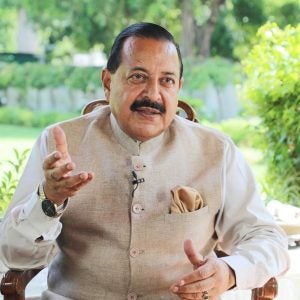Speaking through an interpreter at the World Nuclear Fuel Cycle 2006 meeting (organised by the World Nuclear Association and the Nuclear Energy Institute) at the Hong Kong Sheraton hotel, Kiriyenko outlined the new Russian strategy, starting at home: Moscow planners have realised that earlier projections of the country’s electricity demand were inaccurate, and that arrangements should be made to increase power production at 1.5 times the previously anticipated rate. He said that would make necessary a “drastic restructuring” of Russia’s power industry.
Although Russia is rich in resources, Kiriyenko said that it would not be economic to keep the same supply mix, and that it is president Vladimir Putin’s “mission” to see nuclear’s share of generation increase from the current 16% to a level of 23-25% by 2020, and to 25% by 2030. That would require the construction of two 1000-1100MWe LWRs each year. The units would be expected to have an estimated lifespan of 60 years and a construction period of five years. He said the first projects of the new wave would begin in 2007.
A “serious reorganization” of the Russian nuclear sector is also planned, seeing more separation of civil and military nuclear facilities, with the creation of “shareholding companies” that would embrace all aspects of the fuel cycle and power generation. The new companies would operate to international standards of transparency.
Russia’s view of the fuel cycle has also been transformed from that of a national undertaking to an international one. Kiriyenko said that there is currently a major contradiction between the individual nature of most countries’ nuclear fuel capabilities and the international nature of other services, such as manufacturing and design. Isolated development of nuclear energy, Kiriyenko said, is the heritage of the Cold War and makes no sense in the modern business world. Nuclear cooperation between nations began during the nuclear boom of the 1970s, but was stymied by the lack of trust that existed then between nations. It is Russia’s view that those conditions have passed, and the industry must adapt to its new circumstances.
Putin’s Russia also wants to break down trade barriers. Rosatom considers it important to prepare and sign peaceful nuclear cooperation agreements (‘Section 123’ agreements) with countries with which it has not already done so, and open markets to Russian nuclear products. First on the list would be US antidumping controls; second, quotas that restrict Russian uranium products in Europe. Kiriyenko intends to solve these obstacles with market methods in line with legislation in the countries involved.
Russia will be working to promote cooperation, which Kiriyenko considers to be of “primary importance” during its presidency of the G8 groups of industrialised nations. It is his view that solving security of supply problems would be impossible without the consolidated efforts of the international community.
But as well as security of supply, the international community can do much to help international nuclear security through fuel cycle cooperation. The Rosatom head explained that as climate change concerns are acted upon in national policy, more and more countries will turn to nuclear energy, creating a serious non-proliferation challenge. Kiriyenko said that limiting nations’ nuclear development would slow the battle against energy poverty and instead proposed that two stages of the nuclear fuel cycle be taken into international hands: uranium enrichment and spent nuclear fuel management.
Russia would welcome international joint ventures that could supply nuclear fuel services. Kiriyenko believes that such “centres” would give secure supplies of fuel as well as provide the very best non-proliferation safeguards. He said that they could be operated under the IAEA, and that joint ventures on reprocessing of spent nuclear fuel and MOX fuel production would also be possible. Another possibility would be international pools of expertise allowing global legislation, design certification, licensing and training among other things.
His conclusion was that Russia is ready and confident that its expertise could be of great value to such projects: “Russia will be an active player and participate in designing the rules” of the new global fuel market.
Stephen Goldberg of the USA’s Argonne National Laboratory welcomed Kiriyenko’s words. He has drawn up a scheme whereby operators could purchase MWd from a “virtual fuel bank” and leave an international mechanism to supply the fuel itself. Goldberg told NEI that the international fuel cycle will be a reality one day soon, and although Russia’s plans differ from the USA’s Global Nuclear Energy Partnership the emergence of a political synergy between the two nations on this topic was a positive development.
Related ArticlesChina: a drop in the ocean?






